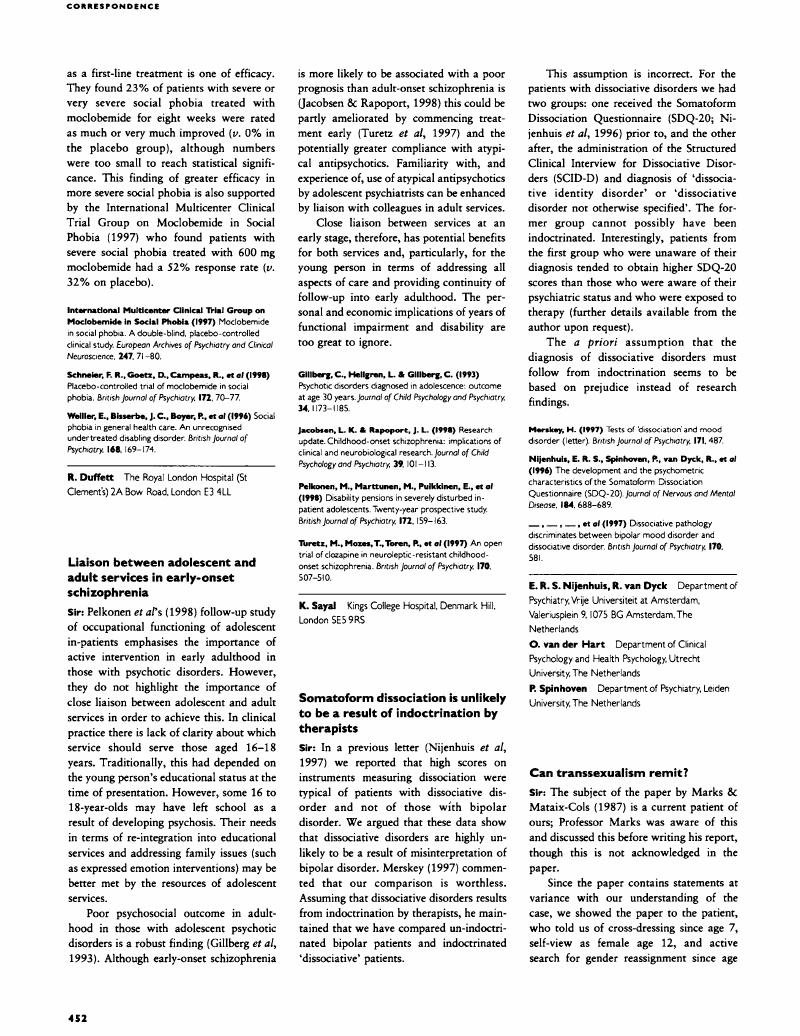Crossref Citations
This article has been cited by the following publications. This list is generated based on data provided by Crossref.
Nijenhuis, Ellert R. S.
2001.
Somatoform Dissociation.
Journal of Trauma & Dissociation,
Vol. 1,
Issue. 4,
p.
7.
Nijenhuis, Ellert R. S.
2010.
The Scoring and Interpretation of the SDQ-20 and SDQ-5.
Activitas Nervosa Superior,
Vol. 52,
Issue. 1,
p.
24.
Farina, Benedetto
Mazzotti, Eva
Pasquini, Paolo
Nijenhuis, Ellert
and
Di Giannantonio, Massimo
2011.
Somatoform and psychoform dissociation among students.
Journal of Clinical Psychology,
Vol. 67,
Issue. 7,
p.
665.
2015.
The Trinity of Trauma: Ignorance, Fragility, and Control.
p.
553.
2016.
Die Trauma-Trinität: Ignoranz – Fragilität – Kontrolle.
p.
639.




eLetters
No eLetters have been published for this article.